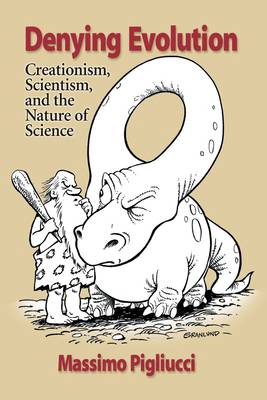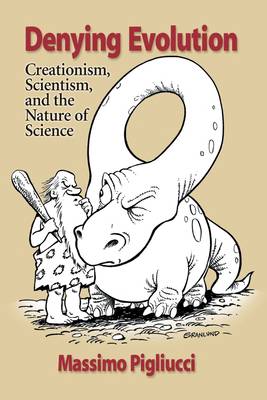
- Afhalen na 1 uur in een winkel met voorraad
- Gratis thuislevering in België vanaf € 30
- Ruim aanbod met 7 miljoen producten
- Afhalen na 1 uur in een winkel met voorraad
- Gratis thuislevering in België vanaf € 30
- Ruim aanbod met 7 miljoen producten
Zoeken
Denying Evolution
Creationism, Scientism, and the Nature of Science
Massimo Pigliucci
Paperback | Engels
€ 41,95
+ 83 punten
Omschrijving
Denying Evolution aims at taking a fresh look at the evolution-creation controversy. It presents a truly "balanced" treatment, not in the sense of treating creationism as a legitimate scientific theory (it demonstrably is not), but in the sense of dividing the blame for the controversy equally between creationists and scientists--the former for subscribing to various forms of anti-intellectualism, the latter for discounting science education and presenting science as scientism to the public and the media. The central part of the book focuses on a series of creationist fallacies (aimed at showing errors of thought, not at deriding) and of mistakes by scientists and science educators. The last part of the book discusses long-term solutions to the problem, from better science teaching at all levels to the necessity of widespread understanding of how the brain works and why people have difficulties with critical thinking.
Specificaties
Betrokkenen
- Auteur(s):
- Uitgeverij:
Inhoud
- Aantal bladzijden:
- 275
- Taal:
- Engels
Eigenschappen
- Productcode (EAN):
- 9780878936595
- Verschijningsdatum:
- 1/06/2002
- Uitvoering:
- Paperback
- Formaat:
- Trade paperback (VS)
- Afmetingen:
- 150 mm x 226 mm
- Gewicht:
- 544 g

Alleen bij Standaard Boekhandel
+ 83 punten op je klantenkaart van Standaard Boekhandel
Beoordelingen
We publiceren alleen reviews die voldoen aan de voorwaarden voor reviews. Bekijk onze voorwaarden voor reviews.











